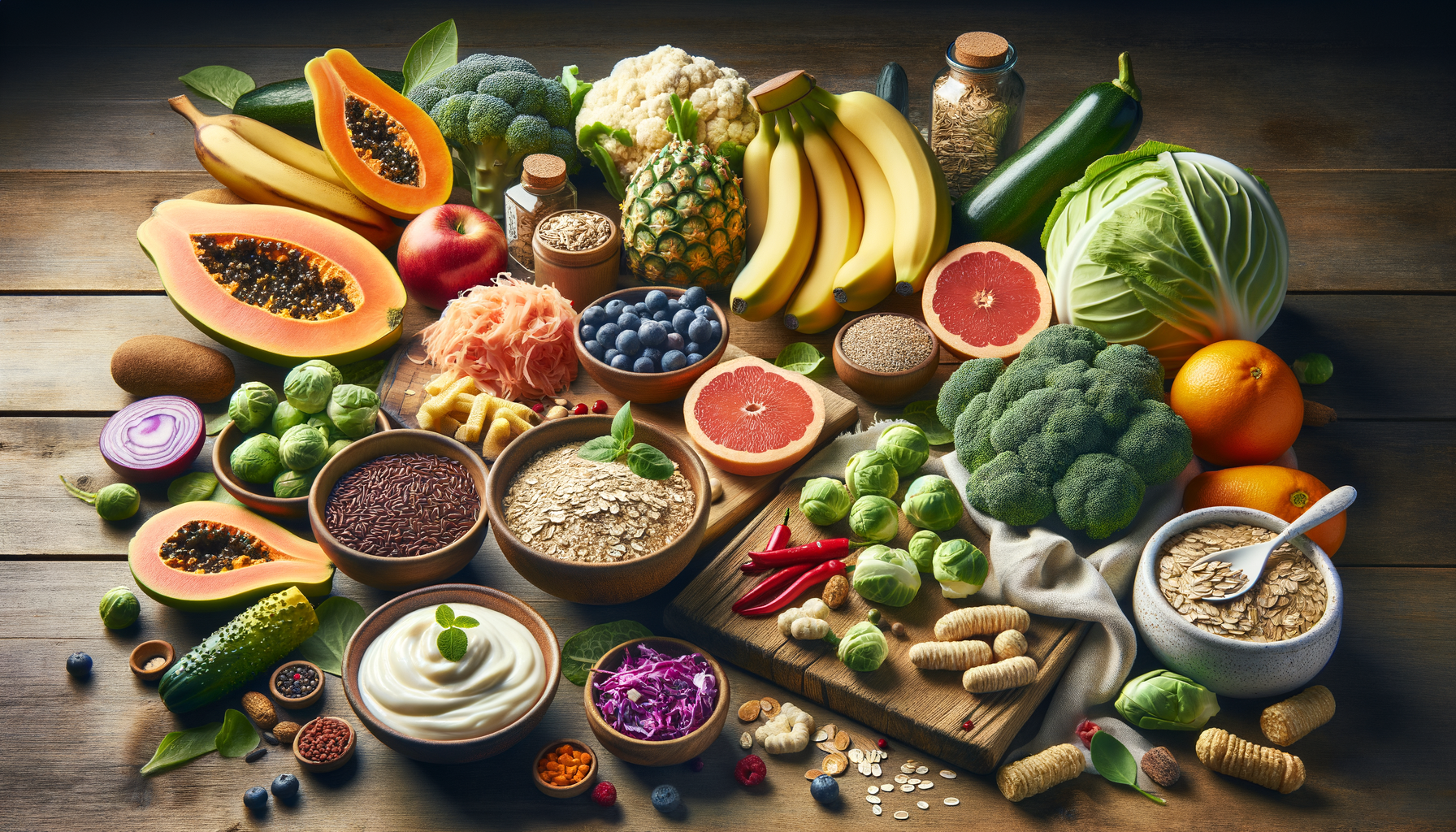Understanding the Gut Microbiome
The gut microbiome is a bustling community of trillions of microorganisms residing in our digestive tract. This complex ecosystem plays a crucial role in our overall health, influencing everything from digestion to immune function. The balance of beneficial and harmful bacteria within the gut is essential for maintaining health. An imbalance, known as dysbiosis, can lead to various health issues, including digestive disorders, obesity, and even mental health conditions. Therefore, nurturing a diverse and balanced gut microbiome is vital.
Research has shown that diet is one of the most significant factors influencing the composition of the gut microbiome. A diet rich in diverse, plant-based foods is associated with a more varied and robust gut microbiome. Conversely, diets high in processed foods, sugars, and unhealthy fats can negatively impact gut health, promoting the growth of harmful bacteria.
Maintaining a healthy gut microbiome is not just about avoiding certain foods but also about actively incorporating foods that support and nourish the beneficial bacteria. By understanding the interplay between diet and gut health, you can make informed choices that promote a healthier gut.
Fiber-Rich Foods: The Backbone of Gut Health
Fiber is a type of carbohydrate that the body cannot digest, and it plays a pivotal role in gut health. It acts as a food source for the beneficial bacteria in the gut, promoting their growth and activity. There are two main types of dietary fiber: soluble and insoluble. Soluble fiber dissolves in water to form a gel-like substance, while insoluble fiber adds bulk to the stool and aids in regular bowel movements.
Foods high in fiber include:
- Whole grains like oats, barley, and brown rice
- Fruits such as apples, bananas, and berries
- Vegetables like broccoli, carrots, and Brussels sprouts
- Legumes including beans, lentils, and chickpeas
- Nuts and seeds, such as almonds and flaxseeds
Incorporating a variety of these fiber-rich foods into your diet can enhance gut health by fostering a diverse and thriving microbiome. Moreover, fiber has been linked to numerous other health benefits, including reduced risk of cardiovascular disease, improved blood sugar control, and weight management.
Probiotic Foods: Boosting Beneficial Bacteria
Probiotics are live microorganisms that provide health benefits when consumed in adequate amounts. These beneficial bacteria can help restore and maintain a healthy balance in the gut microbiome. Probiotic-rich foods are an excellent way to introduce these helpful bacteria into your digestive system.
Common probiotic foods include:
- Yogurt with live cultures
- Fermented foods like sauerkraut, kimchi, and pickles
- Kefir, a fermented milk drink
- Kombucha, a fermented tea beverage
- Miso and tempeh, traditional fermented soy products
Regularly consuming these foods can enhance gut health by increasing the population of beneficial bacteria. While probiotic supplements are available, obtaining probiotics from food sources is often more beneficial, as these foods also provide essential nutrients and fiber.
Prebiotic Foods: Fueling the Gut Microbiome
Prebiotics are non-digestible fibers that serve as food for the beneficial bacteria in the gut. By providing nourishment for these bacteria, prebiotics support their growth and activity, contributing to a healthier gut environment.
Examples of prebiotic-rich foods include:
- Garlic, onions, and leeks
- Asparagus and artichokes
- Bananas and apples
- Whole grains like wheat, oats, and barley
- Root vegetables such as chicory root and dandelion greens
Integrating prebiotic foods into your diet can enhance the effectiveness of probiotics and promote a balanced gut microbiome. Prebiotics have also been linked to improved digestion, enhanced immune function, and reduced inflammation.
Conclusion: Eating for a Healthier Gut
Incorporating the right foods into your diet is a powerful way to support gut health and overall well-being. By focusing on a diverse array of fiber-rich, probiotic, and prebiotic foods, you can nurture a thriving gut microbiome. This, in turn, can lead to improved digestion, enhanced immune function, and even better mental health.
Remember that achieving and maintaining gut health is a journey, not a destination. It requires consistent effort and mindful eating choices. By embracing a diet that supports your gut, you are investing in your long-term health and vitality. So, the next time you plan your meals, consider how you can incorporate more gut-friendly foods and embark on the path to a happier, healthier gut.




Leave a Reply